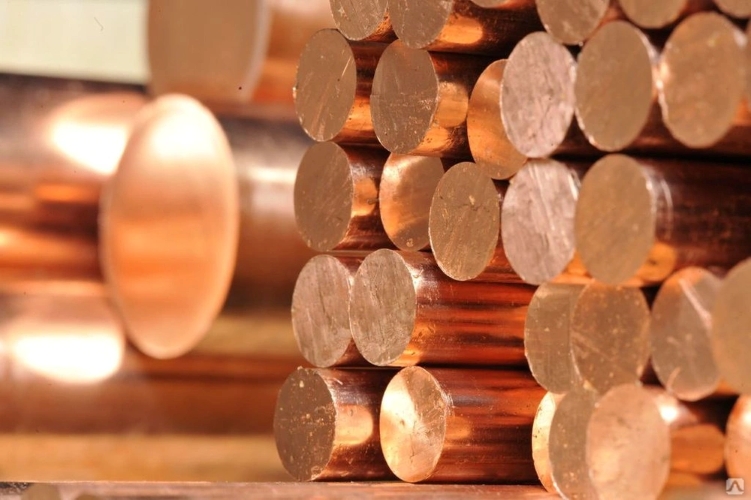- No.3, 327 S.V.P.Road, Makharai House, Mumbai- 400004, INDIA
- sales@ariesalloys.com
Aerospace Nickel
- Home
- Aerospace Nickel

Nickel-Based Alloys in Aerospace Applications: Composition, Standards, and Performance
Nickel-based alloys are among the most critical materials used in the aerospace industry, offering exceptional strength, corrosion resistance, and high-temperature performance. These alloys are widely utilized in jet engines, turbine blades, exhaust systems, and space exploration components due to their ability to withstand extreme thermal and mechanical stresses.
Why Nickel-Based Alloys for Aerospace?
Nickel-based alloys are preferred in aerospace applications due to their outstanding properties:
- High-Temperature Strength – Maintains structural integrity in extreme heat conditions.
- Oxidation & Corrosion Resistance – Ensures durability in harsh environments, including saltwater and exhaust exposure.
- Creep & Fatigue Resistance – Withstands long-term mechanical stress at high temperatures.
- Thermal Stability – Maintains performance under rapid temperature fluctuations.
- Excellent Weldability – Allows for complex aerospace component manufacturing.
Nickel-based alloys are preferred in aerospace applications due to their outstanding properties:
- High-Temperature Strength – Maintains structural integrity in extreme heat conditions.
- Oxidation & Corrosion Resistance – Ensures durability in harsh environments, including saltwater and exhaust exposure.
- Creep & Fatigue Resistance – Withstands long-term mechanical stress at high temperatures.
- Thermal Stability – Maintains performance under rapid temperature fluctuations.
- Excellent Weldability – Allows for complex aerospace component manufacturing.
Common Nickel-Based Alloys & Their Aerospace Applications
1. Inconel 718
- Applications: Jet engine components, turbine blades, and high-temperature fasteners.
- Chemical Composition:
- Nickel (Ni): 50-55%
- Chromium (Cr): 17-21%
- Iron (Fe): Balance
- Molybdenum (Mo): 2.8-3.3%
- Titanium (Ti): 0.65-1.15%
- Cobalt (Co): 1.0% max
- Standards: AMS 5662, AMS 5663, ASTM B637
2. Inconel 625
- Applications: Aerospace exhaust systems, heat shields, and fuel lines.
- Chemical Composition:
- Nickel (Ni): 58.0 min
- Chromium (Cr): 20.0-23.0%
- Iron (Fe): Balance
- Molybdenum (Mo): 8.0-10.0%
- Niobium (Nb): 3.15-4.15%
- Standards: AMS 5666, ASTM B443
3. Hastelloy X
- Applications: Combustion chambers, afterburners, and gas turbine components.
- Chemical Composition:
- Nickel (Ni): Balance
- Chromium (Cr): 20.5-23.0%
- Iron (Fe): 17.0-20.0%
- Molybdenum (Mo): 8.0-10.0%
- Cobalt (Co): 0.5-2.5%
- Standards: AMS 5536, ASTM B572
4. Rene 41
- Applications: High-temperature aircraft engine components, rocket motors, and turbine blades.
- Chemical Composition:
- Nickel (Ni): Balance
- Chromium (Cr): 18.0-20.0%
- Cobalt (Co): 10.0-12.0%
- Molybdenum (Mo): 9.0-10.5%
- Titanium (Ti): 3.0-3.3%
- Standards: AMS 5545, AMS 5712
1. Inconel 718
- Applications: Jet engine components, turbine blades, and high-temperature fasteners.
- Chemical Composition:
- Nickel (Ni): 50-55%
- Chromium (Cr): 17-21%
- Iron (Fe): Balance
- Molybdenum (Mo): 2.8-3.3%
- Titanium (Ti): 0.65-1.15%
- Cobalt (Co): 1.0% max
- Standards: AMS 5662, AMS 5663, ASTM B637
2. Inconel 625
- Applications: Aerospace exhaust systems, heat shields, and fuel lines.
- Chemical Composition:
- Nickel (Ni): 58.0 min
- Chromium (Cr): 20.0-23.0%
- Iron (Fe): Balance
- Molybdenum (Mo): 8.0-10.0%
- Niobium (Nb): 3.15-4.15%
- Standards: AMS 5666, ASTM B443
3. Hastelloy X
- Applications: Combustion chambers, afterburners, and gas turbine components.
- Chemical Composition:
- Nickel (Ni): Balance
- Chromium (Cr): 20.5-23.0%
- Iron (Fe): 17.0-20.0%
- Molybdenum (Mo): 8.0-10.0%
- Cobalt (Co): 0.5-2.5%
- Standards: AMS 5536, ASTM B572
4. Rene 41
- Applications: High-temperature aircraft engine components, rocket motors, and turbine blades.
- Chemical Composition:
- Nickel (Ni): Balance
- Chromium (Cr): 18.0-20.0%
- Cobalt (Co): 10.0-12.0%
- Molybdenum (Mo): 9.0-10.5%
- Titanium (Ti): 3.0-3.3%
- Standards: AMS 5545, AMS 5712
Aerospace Industry Standards for Nickel-Based Alloys
Nickel-based alloys used in aerospace must comply with stringent industry standards to ensure safety and reliability:
- ASTM (American Society for Testing and Materials) – Defines material composition and performance standards.
- AMS (Aerospace Material Specifications) – Establishes requirements specific to aerospace applications.
- MIL-N (Military Specifications for Nickel Alloys) – Used in defense and military aerospace components.
- ISO (International Organization for Standardization) – Governs quality management and compliance.
Nickel-based alloys used in aerospace must comply with stringent industry standards to ensure safety and reliability:
- ASTM (American Society for Testing and Materials) – Defines material composition and performance standards.
- AMS (Aerospace Material Specifications) – Establishes requirements specific to aerospace applications.
- MIL-N (Military Specifications for Nickel Alloys) – Used in defense and military aerospace components.
- ISO (International Organization for Standardization) – Governs quality management and compliance.
Conclusion
Nickel-based alloys are essential for aerospace applications requiring extreme heat resistance, strength, and corrosion protection. Aries Alloys supplies premium-quality aerospace-grade nickel alloys, ensuring compliance with international standards for optimal performance in aviation and space exploration.
For more information on our nickel alloy inventory, contact Aries Alloys today!
Nickel-based alloys are essential for aerospace applications requiring extreme heat resistance, strength, and corrosion protection. Aries Alloys supplies premium-quality aerospace-grade nickel alloys, ensuring compliance with international standards for optimal performance in aviation and space exploration.
For more information on our nickel alloy inventory, contact Aries Alloys today!
